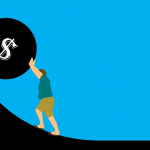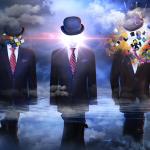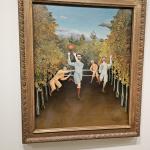
Boredom has been described as one of the major spiritual problems of our time. The hyper-stimulation that comes from our technology and our constant-entertainment mentality actually makes us more bored, since we become jaded and weary of it all, as stimulation eventually fails to stimulate. But there is another sense in which a carefully-cultivated boredom can be an antidote to our harried minds.
A travel company called Getaway offers “An experience designed to bring us back to our elements, immerse us in the magic of the woods, and challenge us to rediscover the pleasure of boredom, solitude and unstructured time.”
With three sites two hours from the major cities of New York, Boston, and Washington, D.C., Getaway rents tiny but luxurious cabins in a beautiful forest. There is no Wi-Fi, no television, and a lock-box for your cellphone. (There is a land-line to call the manager and for emergencies.) There is food in the kitchen, wood for the fire, and a huge window looking into the forest.
A book of instructions will orient you and includes the mandate, “Be bored.” The idea is that you do nothing. You spend your time looking not at a screen but looking out the window into the woods. Wander around outside, if you want. Enjoy time with your spouse, if you come as a couple. But have no schedule, no pressure, no worries. Stop thinking about everything. Just exist for awhile. Doesn’t this sound good?
I’m sure you would hit the boredom threshold at some point, but I suspect that if you just push through it, you would attain the state that used to be known as relaxation.
Greg Dickinson writes about the experience in the London Telegraph in his article Is ‘being bored’ the next travel trend for millennials? After describing his stay, he quotes the head of the company on the benefits of boredom:
“Boredom used to be a dirty word,” CEO of Getaway Jon Staff told me when I got back. “But in our always-on, always-connected world we’re at risk of losing this very special experience that inspires creativity, reflection and empathy.
“Without the opportunity to be bored, we may never have that important realization about ourselves, our next big idea or be able to fully connect with those most meaningful to us.”
Unsurprisingly for a graduate from Harvard Business School, Jon has scientific data to back up his mantra of switching off in a natural setting. In a research document he sent me, it explained: “Nature restores prefrontal cortex-mediated executive processes such as selective attention, problem-solving, inhibition and multi-tasking.” There is also evidence that a digital overload hurts our memory. He writes: “Distraction makes it difficult to store memories: when we are not paying good attention, we have trouble retrieving it later”.
Much of Jon’s research relates to issues faced by overworked Americans. Just 40 years ago, 80 per cent of workers took an annual week-long holiday, in 2018 just 56 per cent do. According to a recent monster.com poll, one in five Americans say they never fully relax on vacation.
Some of the article and the website sounds kind of new-agey, but Christians used to cultivate solitude for prayer and meditation. Even Jesus would sometimes retire to some “solitary place” to pray (Mark 1:35). You don’t have to rent a $199 per night cabin to get away and do nothing, though doing nothing is harder than it sounds.
Still, this kind of getting away for a Christian could help us to “be still and know that I am God” (Psalm 46:10).
Photo by ruvenss via Pixabay, CC0, Creative Commons

















